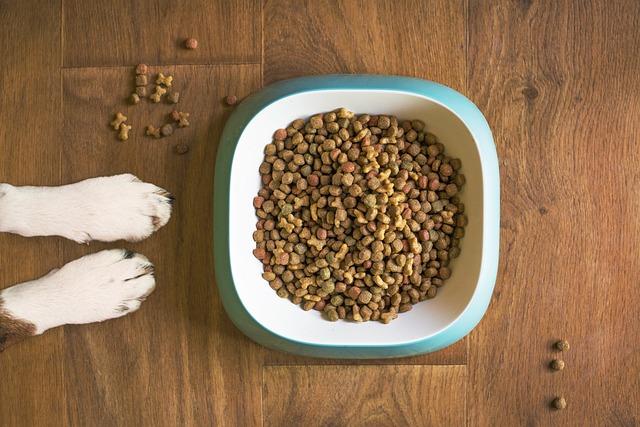Caring for a dog with a sensitive digestive system can often feel like navigating a complex puzzle, where each piece must fit just right to ensure their health and happiness. Whether your furry friend has recently shown signs of digestive distress or has long struggled with tummy troubles, finding the right diet is crucial to their well-being. In this guide, we’ll explore gentle, nourishing options that cater to delicate stomachs, helping you to craft meals that not only satisfy your dog’s nutritional needs but also bring them comfort and joy. With a little knowledge and a lot of love, you can transform mealtime into a soothing experience for your beloved companion.
Understanding Your Dogs Dietary Needs
When caring for a dog with a delicate digestive system, it’s essential to focus on ingredients that promote gut health and reduce irritation. Lean proteins like chicken or turkey are often easier for sensitive stomachs to digest. Incorporating boiled rice or sweet potatoes can provide the necessary carbohydrates without causing discomfort. Always opt for a grain-free diet if your pup shows signs of grain sensitivity, and avoid common allergens such as soy, corn, and dairy.
- Probiotics: Help balance gut flora and improve digestion.
- Prebiotic fibers: Support a healthy gut microbiome.
- Omega-3 fatty acids: Found in fish oil, they can reduce inflammation.
- Limited ingredient diets: Simplified formulas to pinpoint specific triggers.
It’s important to introduce new foods gradually, observing any reactions your dog may have. Consult with a veterinarian to tailor a diet that meets your pet’s specific needs, ensuring they receive balanced nutrition while minimizing digestive distress.

Choosing Easily Digestible Ingredients
When catering to a dog with a sensitive stomach, it’s crucial to focus on ingredients that are gentle yet nutritious. Opt for lean proteins such as chicken, turkey, or fish, which are less likely to irritate the digestive tract. Incorporate easily digestible carbohydrates like rice or sweet potatoes, which provide energy without adding stress to their system.
Consider including fiber-rich options that aid digestion and promote gut health. Some great choices are pumpkin and carrots. Remember to avoid ingredients known to trigger sensitivities, such as dairy or artificial additives. By carefully selecting these components, you’ll help ensure your furry friend enjoys their meals without discomfort.

Incorporating Supplements for Gut Health
To enhance your furry friend’s digestive health, introducing supplements can be a beneficial addition to their diet. These supplements can help balance the gut microbiome and promote a healthy digestive system. Probiotics are a great starting point, as they introduce beneficial bacteria that can aid in digestion and nutrient absorption. Look for supplements containing strains like Lactobacillus and Bifidobacterium. Prebiotics, on the other hand, serve as food for these good bacteria, encouraging their growth and activity. Ingredients such as chicory root and inulin are common prebiotics found in dog supplements.
Additionally, consider digestive enzymes to support the breakdown of food, making it easier for your dog to absorb essential nutrients. Omega-3 fatty acids, often derived from fish oil, can reduce inflammation in the gut and improve overall digestive health. When choosing supplements, ensure they are specifically formulated for dogs and consult your veterinarian to tailor the best plan for your pet’s unique needs. Adding these supplements gradually can help minimize any potential digestive upset and ensure a smoother transition.

Crafting a Balanced Meal Plan
Creating a meal plan for a dog with a sensitive digestive system requires a thoughtful approach to nutrition. Start by incorporating high-quality proteins such as boiled chicken or turkey, which are gentle on the stomach. Avoid processed meats or fillers that can upset digestion. For carbohydrates, opt for easily digestible options like brown rice or sweet potatoes, which provide essential energy without causing discomfort.
- Probiotics: Introduce natural sources like plain yogurt or a vet-recommended supplement to promote healthy gut flora.
- Healthy Fats: Include small amounts of fish oil or flaxseed oil to support skin and coat health.
- Fiber: Add pumpkin or cooked carrots to aid in digestion and improve stool quality.
- Hydration: Ensure your dog has constant access to fresh water to help flush out toxins and maintain hydration.
Remember to transition gradually to any new diet, observing your dog’s reactions closely, and consult your veterinarian for personalized advice tailored to your dog’s specific needs.

